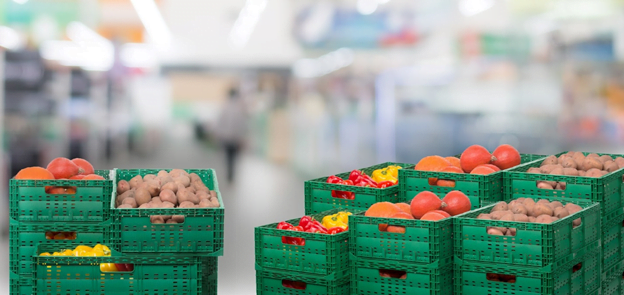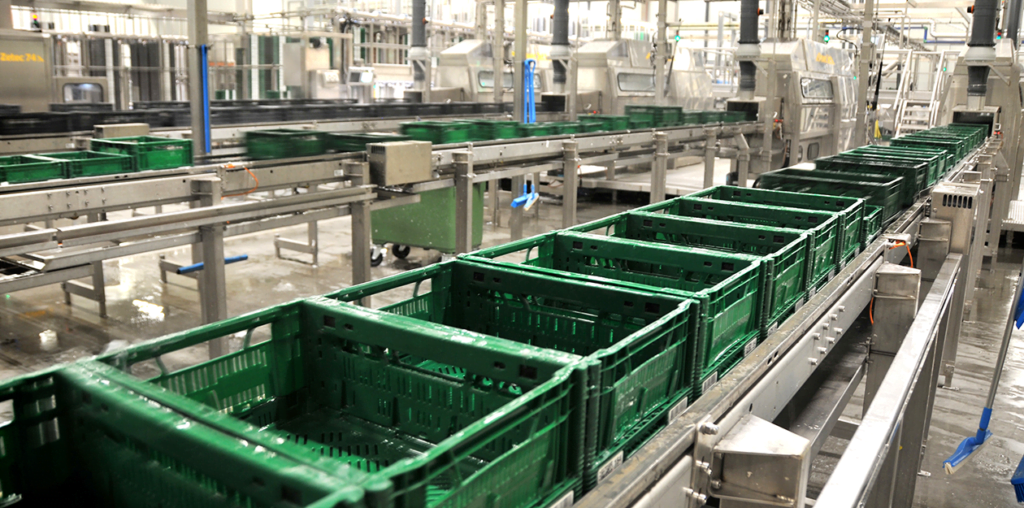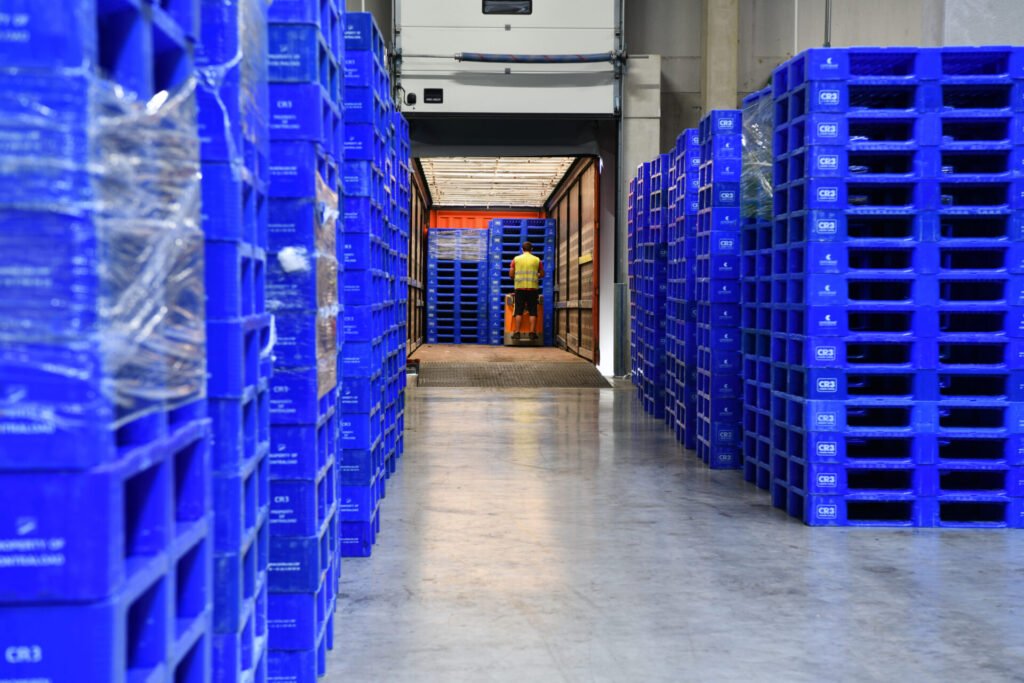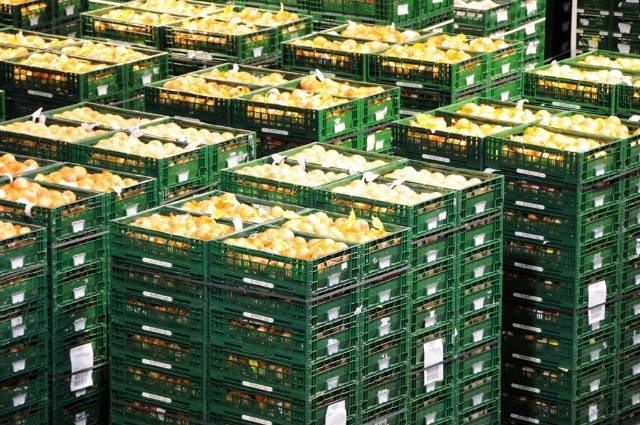Turkish experience in the development of pooling of foldable boxes will be even more interesting and relevant for the countries of our region, primarily for Moldova, Georgia, Uzbekistan, Kazakhstan, and Tajikistan, than the experience of the European Union. The experience of Turkey is very diversified, but the most interesting thing is that Turkish pooling companies have managed to involve not only supermarkets but also bazaars and other unorganized trade operators in the pooling system. Therefore, EastFruit analysts could not pass by such an interesting experience.
Recall that you can get acquainted with the global history of pooling with a focus on the EU here, and read about the evolution of pooling in Ukraine in this article by EastFruit.
First of all, we note that Turkey is not just one of the 9 largest global exporters of vegetables and fruits with export earnings of more than $6 billion. It has a huge domestic market with a population of more than 84 million. Not surprisingly, this market has a wide variety of different business models that are changing under the pressure of various internal and external market factors.
We have identified three main stages in the development of pooling in Turkey, which are detailed below.
The first stage: 1995–2000
Given the high degree of integration of the Turkish fruit and vegetable business in global supply chains, especially in the EU market, it is natural that Turkey became one of the first non-EU countries where the pooling business began to develop in the mid-90s. The main incentive for the development of pooling for Turkey, given the specifics of the country’s horticultural business, was the optimization of export logistics costs.
Also, Turkey historically had a developed domestic production of polymer products, including plastic containers, which were actively used in the supply chains of fruits and vegetables and other types of products. In Turkey, there has long been a market practice of exchanging plastic containers between farmers and commission agents, usually using a security deposit. This market practice created the basis for the rapid development of local pooling companies.

The second stage: 2001–2010
The beginning of the second stage was marked by the opening in 2001 of a local company by the largest international pooling operator IFCO, which significantly increased the volume of pooling services for Turkish exporters. A little later, in 2003, the international retail chain TESCO entered the Turkish market and began to use its reusable plastic containers in cooperation with local suppliers. Then international pooling operators such as EuroPoolSystem and Polimer Logistics entered the Turkish market, which was subsequently taken over by the TOSCA pooling operator in 2019.
Seeing the activation of international operators in the Turkish market, Turkish manufacturers of polymer products tried to copy existing business models and invest in creating their own molds necessary for the manufacture of plastic reusable containers, as well as copying outdated European molds that were no longer protected by patents. At the same time, Turkish manufacturers tried to compete primarily due to a lower price offer, with lower quality of the service offered than their European competitors.
First, Migros, the leader of the Turkish retail market, purchased a batch of reusable packaging from one of the manufacturers and then leased it to its suppliers. Then the local company Aykasa entered the market of pooling services and started leasing reusable plastic containers for Turkish retail chains. But after a few years, this company reduced its presence in the market of services of foldable box pooling, focusing on the sale of folding containers to end users.
A little later, in 2005, SEDES Holding which is part of the Sabanci group of companies entered the market. This operator has invested heavily in a new plastic packaging plant located in the SEZ. It actively developed the leasing of plastic containers for Turkish retail chains, provided customers with washing equipment free of charge, experimented with the composition of raw materials to significantly reduce costs and developed economy models of boxes that were several times cheaper than the base model, but of significantly lower quality. The company also tried to enter the market of the EU and Ukraine and several other countries.
In addition, AlpinPlast, Etap Plastik, and several other companies have entered the Turkish market of folding reusable plastic containers. Thus, the competition in the market was as high as possible, and the choice of packaging users was quite wide.

Also, the segment of pooling of large plastic containers has received significant development in Turkey, which are actively used by producers and packaging centers for citrus fruits, apples, and other fruits and vegetables during harvesting and storage.
The development of the segment of pooling of wooden and plastic pallets in Turkey should be noted, too. Turkey annually imports a large number of wooden pallet blanks, so the high price of wood, as well as close trade relations with EU countries and other developed countries, created favorable conditions for the development of pallet pooling.
CHEP, the world’s largest pooling operator for wooden pallets, has opened a local company in Turkey. After him, two European operators LPR and PCS entered this market. Further, a group of Turkish polymer product manufacturers invested in molds and brought a whole line of plastic pallets to the Turkish market. Also, the largest Turkish logistics company, Netlog Logistics, has created a pooling company that currently owns more than 2.5 million wooden pallets and continues to actively develop this area.
The third stage 2011–2022
The main driver of pooling development at this time was retail chains, especially discounters, which now own more than 30 000 stores. The introduction of pooling allowed retail chains to increase their competitiveness compared to unorganized retail, reduce mechanical damage to products throughout the supply chain, reduce losses and the purchase price through direct purchase from producers, increase the level of vehicle recycling and the efficiency of using warehouse space in distribution centers and retail space in shops.
During this period, the international pooling operator IFCO managed to increase its market share by signing long-term contracts with such retail chains as Migros, SOK, Carrefour, A101, and others. At the same time, BIM, the largest Turkish discounter chain, preferred cooperation with a local Turkish operator. In 2016, TESCO sold its Turkish store chain to Migros. After the rebranding of TESCO stores, their old reusable containers were replaced with boxes from the pooling operator IFCO.
After 2016, Turkish SEDES Holding left the pooling services market, concentrating on the production and sale of polymer products. At the same time, several regional Turkish retail chains have invested in their reusable plastic containers. Turkish companies also continued their development, leasing plastic containers for producers and commission agents that work with unorganized retail.
The share of unorganized food retail in Turkey is still about 50%, so this market segment has good potential for the development of pooling services by local operators.
An important factor that stimulated the development of pooling services was the signing of the Paris Climate Agreement in 2016 and the European Green Deal in 2021. Thanks to these agreements, the market for pooling services, as an important element of the global circular economy, received long-term support from most states globally. The main beneficiaries were pooling companies operating in the Turkish market integrated with the EU market, such as IFCO, EuroPoolSystem, and TOSCA.

The impact of the E-Grocery segment on the development of the Turkish pooling services market, which has hugely grown during the COVID-19 pandemic, especially in Istanbul, must be noted. Interestingly, after the abolition of COVID-19 restrictions, the segment continued its dynamic development. Even now, E-Grocery operators use both their reusable containers and pooling operators’ containers to optimize logistics costs throughout the supply chain.
Conclusions:
The Turkish experience in the development of the pooling services market allows us to draw several important lessons:
Firstly, saving on the quality of reusable packaging and servicing infrastructure to minimize the cost of pooling services does not allow for gaining a competitive advantage in the long term. As a result, this leads to the loss of customers or even the exit of the company from the market.
Secondly, the wide variety of business models allows each pooling operator to find its market niche in the large growing Turkish market.
Thirdly, for the long-term development of local pooling companies, it is critical to comply with international requirements, especially the requirements of the European Union.
Fourthly, Turkish pooling companies have not been able to systematically enter the markets of other countries with their service, but the potential for such expansion still exists.
Fifthly, pooling can be relevant both for supermarket chains and unorganized retail.
The use of the site materials is free if there is a direct and open for search engines hyperlink to a specific publication of the East-Fruit.com website.




